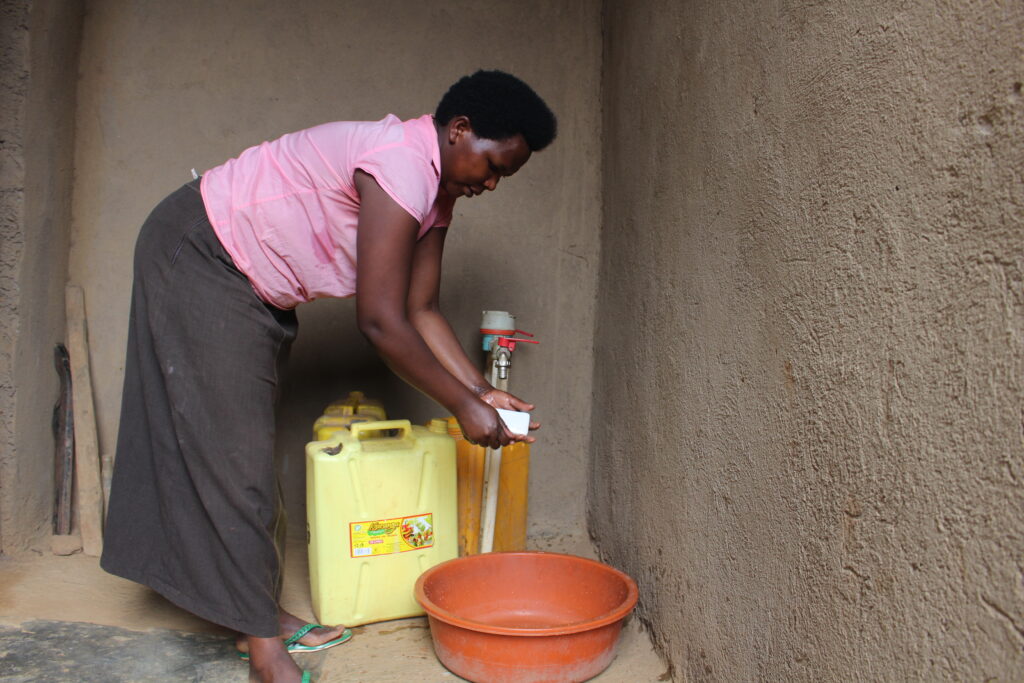“Our clothes had lost their original colors”
Josephine Nibamuhoze, a 40 year’s old mother who lives in Mbabe Cell, Masaka Sector of Kicukiro District, still remembers the days when she would come from farming hungry and instead of going to cook, she would instead pick a jerrycan and head downhill to collect water. On other days, she had to wake up as early as 5am to go fetch water before she could go into her other activities. This became her daily routine in a society where looking for water is a job reserved mostly for women and children.
The walk to and from the Nyabarongo river – where for decades her village residents used to get water- took her almost one-and-half hours.
"It was a painful and time-consuming journey that put a heavy toll both on our health and the family’s development," says Josephine. "You couldn’t send your children there since the risks of drowning were high."
The water Josephine and her village mates were using was dirty and filled with sediments resulting from soil erosion.

"The river water we were using was so dirty that our clothes had lost their original colors," Josephine says.
Drinking dirty water as well as using it for cooking, cleaning home utensils, washing clothes and bathing exposed locals to different types of waterborne diseases, Josephine says. At least once about 15 years ago, she remembers that her village suffered from a cholera outbreak which left many hospitalized. Josephine’s family was miraculously spared. She puts blame on dirty water.
About 5 months ago, the situation improved in Josephine’s Village: Clean water started flowing at home thanks to efforts by Water For People and local leaders. She seized the opportunity and invested 100 ,000 Frw (Approx. 113 USD) to have a tap fitted with a prepaid water meter next to her kitchen.
"You can’t imagine how happy we are today. Nothing compares to getting water at home anytime you wish," she says, as she washes her hands near her home tap.
"My dream is to see water flowing uninterrupted for generations. At least that’s what I wish for every member of my village: accessing clean water every time they need it"
